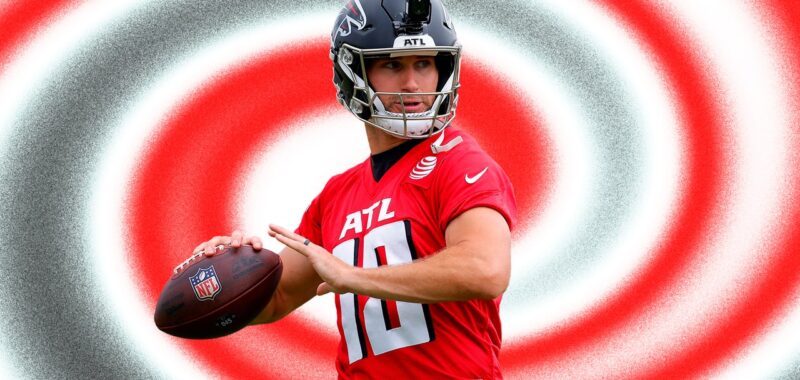After suffering a torn Achilles to end his 12th season in the NFL, four-time Pro Bowl quarterback Kirk Cousins rearranged his day-to-day life around a meticulous and monotonous rehab schedule. That injury ended his tenure with the Minnesota Vikings, and he was determined to turn over a new leaf next season.
But when, earlier this summer, GQ sat with the new Atlanta Falcons quarterback on a lake in Western Michigan, he seemed excited to put that process behind him. We were onboard his Manitou pontoon boat—he’s a company spokesman. And maybe it was the chill lake-life vibes, but if there is a level of stress that comes after signing a four-year, $180-million deal with a new team, under a new coaching staff, while working back to form from a major injury, it isn’t present when Cousins is on the water. He told GQ about what he learned while working his way back to form and why he’ll never be picky when it comes to “naughty foods.”
For Real-Life Diet, GQ talks to athletes, celebrities, and other high performers about their diet, exercise routines, and pursuit of wellness. Keep in mind that what works for them might not necessarily be healthy for you.
GQ: How would you say the rehab process has impacted your typical offseason routine?
It’s dramatically changed. I mean, I never thought I’d spend this much time on my on my lower right leg. Every day and multiple times a day, it’s modalities for my Achilles to strengthen my calf and heal that area. That really is focus number one. There are certainly other things I need to do to take care of my shoulder to throw the football, plus eating, and sleeping right. There are all kinds of bodywork and football prep I can be doing, but number one is getting the Achilles healed and strong so that it is truly in the rearview mirror, and I can play as the same player I was before the injury.
Up until this, you had never missed a game in your career due to injury, which highlights how fortunate you’ve been and how well you take care of your body. With the Achilles taking up a majority of the focus, what is the balancing act to not short change what you’re doing for the rest of your body?
That’s the challenge. All offseason, I’ve had to focus on the Achilles, but not to the detriment of getting the rest of myself ready for the season. That really has been a time burden of how do I find the extra time to do the Achilles when I already was so busy doing everything else. That’s a bit of a dance. You’ve got to be adaptable as a pro athlete. Things are always getting thrown your way. We figured it out and managed it, but that has been a challenge this offseason.
That’s where getting on a boat and being able to kind of check out is so valuable. You’ve got to really be structured because otherwise, you can watch your days get away from you. I wanted to make sure on this summer break that we take the time to rehab the Achilles, take the time to get ready for the season, but also take the time to recharge the batteries so that when I do go back for training camp, I am ready for a seven-month grind as opposed to running out of gas.

